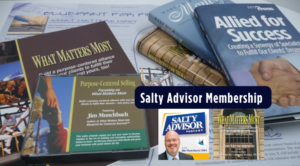Last Will and Testament by #Investopedia

A last will and testament is a legal document that communicates a person’s final wishes pertaining to assets and dependents. A person’s last will and testament outlines what to do with possessions, whether the deceased will leave them to another person, a group or donate them to charity, and what happens to other things that they are responsible for, such as custody of dependents and management of accounts and financial interests. Some states do allow for non-standard or unusual wills, such as a holographic will, while others do not.
Key Takeaways
-
If parents with children die without a last will and testament, the courts will appoint a guardian for their minors.
-
If you die intestate, your estate is settled by the courts, including the distribution of all assets.
-
Writing a will and testament gives you some control over what happens to your assets after your death.
-
Trusts and life insurance policies with named beneficiaries do not pass through probate court.
-
Today, wills can be drafted affordably using an online will maker.
How a Last Will and Testament Works
A person writes a will while still alive and its instructions are only carried out once the individual dies. A will names a still-living person as the executor of the estate, and that person is responsible for administering the estate. The probate court usually supervises the executor to ensure that the wishes specified in the will are carried out.
A will and last testament forms the foundation of an estate plan and is the key instrument used to ensure that the estate is settled in the manner desired by the deceased. While there can be more to an estate plan than just a will, it is the presiding document the probate court uses to guide the process of settling an estate.
Any assets not already designated by a beneficiary, such as a life insurance policy or qualified retirement plan, are not included as probate assets and pass directly to the beneficiaries.
Specifically, a will and last testament instructs the court in the disposition of all assets, including who is to receive them and in what amount. It establishes guardian arrangements for surviving dependents and accounts for any special circumstances, which may include the care of a special-needs child or an aging parent.
Addenda to the will, such as a power of attorney or a medical directive, can direct the court on how to handle matters if a person becomes physically or mentally incapacitated.
Requirements for a Last Will and Testament
A will allows you to direct how your belongings—such as bank balances, property, or prized possessions—should be distributed. If you have a business or investments, your will can specify who will receive those assets and when. A will also allows you to direct assets to a charity (or charities) of your choice. Similarly, if you wish to leave assets to an institution or an organization, a will can assure that your wishes are carried out. Thus, a will requires one to identify those assets and property that are to be bequeathed and to whom (known as named beneficiaries).
In addition, a will often designates an executor, a trusted individual whose main duty is to carry out the will’s instructions to manage the affairs and wishes of the deceased person’s estate. Parents of minor children can furthermore designate a legal guardian to care for them if death is untimely.
For a will to be considered valid, it must be signed by an individual of sound mind and mentally capable. Many jurisdictions further require that the signing of a will be witnessed by at least two unrelated individuals, aged 18 or over.
While many people employ the services of a lawyer or law firm to aid in writing a will, this is not necessary to make most wills legal and binding.
## Wills vs. Trusts

Wills and trusts are both important estate-planning tools, but they differ in important ways. Trusts are legal entities created by settlors (also known as trustors or grantors) to decide how to transfer parts or all of their assets to trustees. These trustees hold on to the assets of the beneficiaries of the trust. A trust can be created for a variety of functions, and there are many types of trusts. Overall, however, there are two categories: living and testamentary. A will can be used to create a testamentary trust. You can also create a trust for the primary purpose of avoiding probate court, called a revocable living trust.
A will becomes active only after one’s death. A trust, on the other hand, becomes active the day you create it, where a settlor may list the distribution of assets before their death. Trusts do tend to be more expensive than wills to create and maintain. A trustee will be named in the document to control the assets’ distribution following the trustor’s wishes, following the trust document and its mandates. Unlike wills, trusts do not go through a probate process and are not usually a matter of public record. A trust, however, can only deal with property or assets that have been already transferred into the trust.
| Wills vs. Trusts | |||||||
|---|---|---|---|---|---|---|---|
| Trusts vs. Wills | Names Guardianship of Minor Children | Can be Challenged in Court | Probate Court | Rules Around Inheritance | Active upon Signing | Can be Revised | Private or Public Record |
| Trusts | No | Not usually | No | Yes | Yes | Yes. If it is a revocable trust. | Private |
| Wills | Yes | Yes | Yes | No | No | Yes | Public record |
There are important distinctions and both legal and tax treatment between different types of trusts. Unlike a will, which can sometimes be written on one’s own or using an online will maker, trusts should be created under the consultation of a qualified attorney.
Consequences of No Will and Testament
When a person dies without a valid will it is said that they have died intestate, which means the state becomes the executor of the estate. In settling the estate, the state decides how to distribute the property and who receives payment first, without any consideration for a family’s circumstances.
Any blood relative can stake a claim to the estate. The court can even establish guardianship arrangements based on its determination as to the best interests of the children. If a court determines a will is improperly drafted, it deems it invalid. The settlement of the estate is then subject to the state’s intestate law.
The probate laws in most states divide property among the surviving spouse and children of the deceased. For example, a resident of Arizona, New Mexico, California, Texas, Idaho, Nevada, Washington, Louisiana, and Wisconsin who dies without a valid will, will have their estate divided according to community property laws in the state. Community property laws recognize both spouses as joint property owners.1
In effect, the distribution hierarchy starts with the surviving spouse, who almost invariably receives at least half the decedent’s estate. They may receive the entire estate if the decedent leaves no living children or grandchildren. If unmarried or widowed at the time of death, assets will be divided among any surviving children, before any other relative. If no next of kin can be located, the assets in the estate will become the property of the state.
Last Will and Testament FAQs
Where Can I Find a Last Will and Testament Maker Online?
Creating a will can often be a simple and inexpensive process where you fill out a form online without the help of an estate planning attorney. Online will makers allow you to draft, print, and sign your last will and testament via an online or downloaded document creator. This is a more cost-effective way to establish will and trust documents compared to going to an attorney or in-person legal service. Most online will makers walk users through a series of questions to then populate the required fields.
Investopedia has reviewed several top online will makers, taking into consideration factors such as ease of use, availability in all states, and the ability to easily update information, to bring you the best online will companies.
What Is a Codicil to a Last Will and Testament?
A codicil is an addendum of any kind to a will. Codicils allow one to alter, change, add to, or subtract from the provisions in their will. Codicils can only be done by the original creator of the will. These changes can be used to keep a will and testament current and up to date, especially as personal circumstances change over time. A codicil is a separate document that references and amends the will.
What Is the Difference Between a Last Will and Testament and a Living Will?
A living will does not involve the transfer of assets upon death. Also known as a healthcare directive, this legal document allows an individual (while they are alive and mentally capable) to empower another person to make decisions about their medical care if the person signing the living will becomes incapacitated. Healthcare proxies can communicate with the patient’s doctors to prevent unwanted treatments and avoid making the wrong decisions. They may also grant power of attorney to make medical decisions for the person who is incapacitated, such as a do-not-resuscitate directive.
How Much Does a Last Will and Testament Cost?
This all depends on the nature of one’s estate and how complex the process of designating beneficiaries may be. A basic will can be drafted for free by an individual on their own. Online will makers range from tens to hundreds of dollars depending on the scope. Hiring a lawyer can cost hundreds to thousands of dollars.







